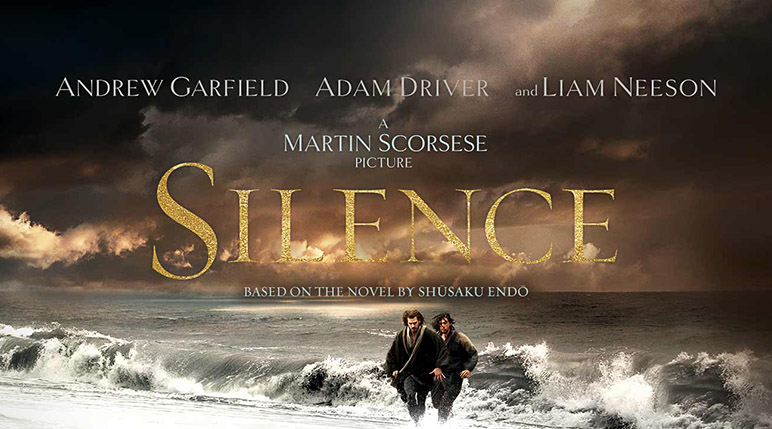One’s first encounter with Silence — whether reading the 1966 Japanese novel by Shusaku Endo or watching the 2016 Hollywood movie adaptation by Martin Scorsese — can be a challenging experience for several reasons. For one thing, the content of the story is challenging. Silence is about the persecution of Christians in seventeenth-century Japan, and it includes several harrowing scenes depicting the torture and execution of Japanese martyrs. (The film is rated R due to graphic violence.) The story builds to a devastating climactic dilemma in which a priest must choose between denying Christ or watching the Christians he serves be tortured to death. Worse, the way this scene plays out challenges orthodox theological views of apostasy. The scene seems to portray the voice of Christ Himself justifying apostasy in this case to save innocent lives. I don’t think this is in fact the best way to interpret the novel or the film. The reason it seems to make this error is that, beyond the challenging content, the form of the story — the way the story is told — is challenging as well.
This Postmodern Realities episode is a conversation with Journal author John McAteer about his online-exclusive “The Hidden Faith of Silence”.
We’d also like to invite you to subscribe to the Journal. To subscribe to the Journal, please click here.
When you to subscribe to the Journal, you join the team of print subscribers whose paid subscriptions help provide the resources at equip.org that minister to people worldwide. These resources include our free online-exclusive articles, such as this review, as well as our free Postmodern Realities podcast.
Another way you can support keeping our resources free is by leaving us a tip. A tip is just a small amount, like $3 or $5, which is the cost for some of a latte, lunch out, or coffee drink. To leave a tip, click here.
Other articles and Postmodern Realities podcasts related to this topic:
Episode 139 Clear Skies, Hurt Hearts, Can’t Lose: Why Spielberg’s Aliens Help Make us More Human
Clear Skies, Hurt Hearts, Can’t Lose: Why Spielberg’s Aliens Help Make us More Human
Episode 123 Tolkien’s First Fellowship
Tolkien’s First Fellowship A film review of Tolkien
Episode 100: A. Hitchcock Films
“Caught Looking: Hitchcock’s Films in the Age of Instagram.”
Episode 001: The Films of Quentin Tarantino
Episode 067: Spielberg’s Nostalgia for Reality in Ready Player One
Spielberg’s Nostalgia for Reality in Ready Player One.”
Episode 054: The Last Jedi: A Star Wars Movie for the Era of “the Nones”
The Last Jedi: A Star Wars Movie for the Era of “the Nones”
Episode 027: “Evaluating the Star Wars Worldview”
May the Force Bewitch You: Evaluating the Star Wars Worldview
Episode 075: Film Nostalgia & Heaven
Looking for Heaven at the Movies: What our Fondness for Nostalgic Films Says about Us.”
“HBO’s Westworld and the Ethics of Artificial Intelligence.”
Episode 041: The Gracious Heroism of Wonder Woman
The Gracious Heroism of Wonder Woman
Episode 039: The Gospel According to Marvel
The Gospel According to Marvel
Episode 024: Dr. Strange (film review with spoilers)
Fighting Scientism with the Occult in Doctor Strange
Episode 017: Suicide Squad, Deadpool, and the Rise of the Comic Book Antihero
Suicide Squad, Deadpool, and the Rise of the Comic Book Antihero
Jesus Films: Who Does Hollywood Say That I Am?
Episode 079: Theology of Morgan Freeman
“The Story of Morgan Freeman (Not God).”
The Artistic Pro-Life Theme in Netflix’s I Am Mother
Postmodern Realities Episode 132: The Artistic Pro-Life Theme in Netflix’s I Am Mother
The Matrix: Unloaded Revelations
Breaking Bad’s Addicting Defense of Moral Realism
A Wrinkle in Time: Drawing Apologetic Value from a De-Christianized Film
